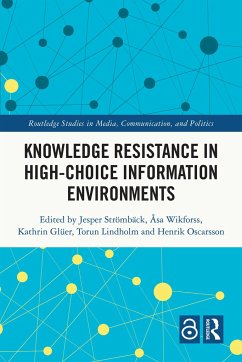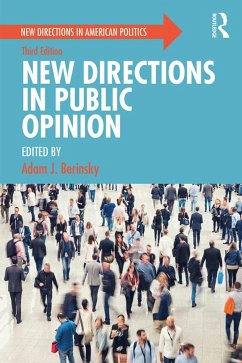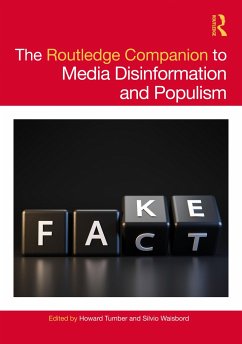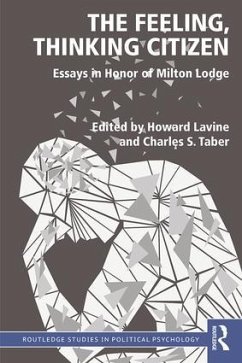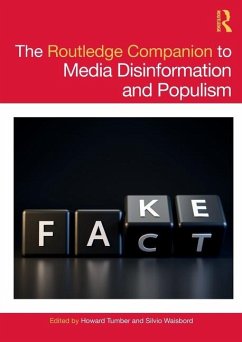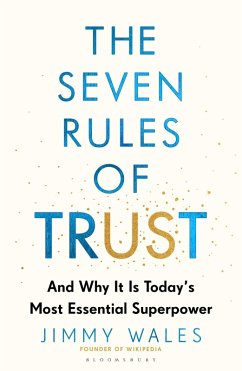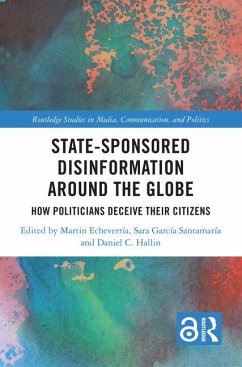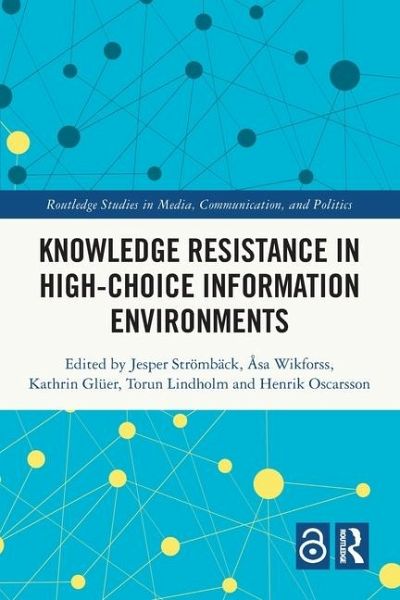
Knowledge Resistance in High-Choice Information Environments
Versandkostenfrei!
Versandfertig in 6-10 Tagen
43,99 €
inkl. MwSt.

PAYBACK Punkte
22 °P sammeln!
This book offers a truly interdisciplinary exploration of our patterns of engagement with politics, news, and information in current high-choice information environments. Putting forth the notion that high-choice information environments may contribute to increasing misperceptions and knowledge resistance rather than greater public knowledge, the book offers insights into the processes that influence the supply of misinformation and factors influencing how and why people expose themselves to and process information that may support or contradict their beliefs and attitudes.A team of authors fr...
This book offers a truly interdisciplinary exploration of our patterns of engagement with politics, news, and information in current high-choice information environments. Putting forth the notion that high-choice information environments may contribute to increasing misperceptions and knowledge resistance rather than greater public knowledge, the book offers insights into the processes that influence the supply of misinformation and factors influencing how and why people expose themselves to and process information that may support or contradict their beliefs and attitudes.
A team of authors from across a range of disciplines address the phenomena of knowledge resistance and its causes and consequences at the macro- as well as the micro-level. The chapters take a philosophical look at the notion of knowledge resistance, before moving on to discuss issues such as misinformation and fake news, psychological mechanisms such as motivated reasoning in processes of selective exposure and attention, how people respond to evidence and fact-checking, the role of political partisanship, political polarization over factual beliefs, and how knowledge resistance might be counteracted.
This book will have a broad appeal to scholars and students interested in knowledge resistance, primarily within philosophy, psychology, media and communication, and political science, as well as journalists and policymakers.
The Open Access version of this book, available at www.taylorfrancis.com, has been made available under a Creative Commons Attribution-Non Commercial-No Derivatives 4.0 license.
A team of authors from across a range of disciplines address the phenomena of knowledge resistance and its causes and consequences at the macro- as well as the micro-level. The chapters take a philosophical look at the notion of knowledge resistance, before moving on to discuss issues such as misinformation and fake news, psychological mechanisms such as motivated reasoning in processes of selective exposure and attention, how people respond to evidence and fact-checking, the role of political partisanship, political polarization over factual beliefs, and how knowledge resistance might be counteracted.
This book will have a broad appeal to scholars and students interested in knowledge resistance, primarily within philosophy, psychology, media and communication, and political science, as well as journalists and policymakers.
The Open Access version of this book, available at www.taylorfrancis.com, has been made available under a Creative Commons Attribution-Non Commercial-No Derivatives 4.0 license.





